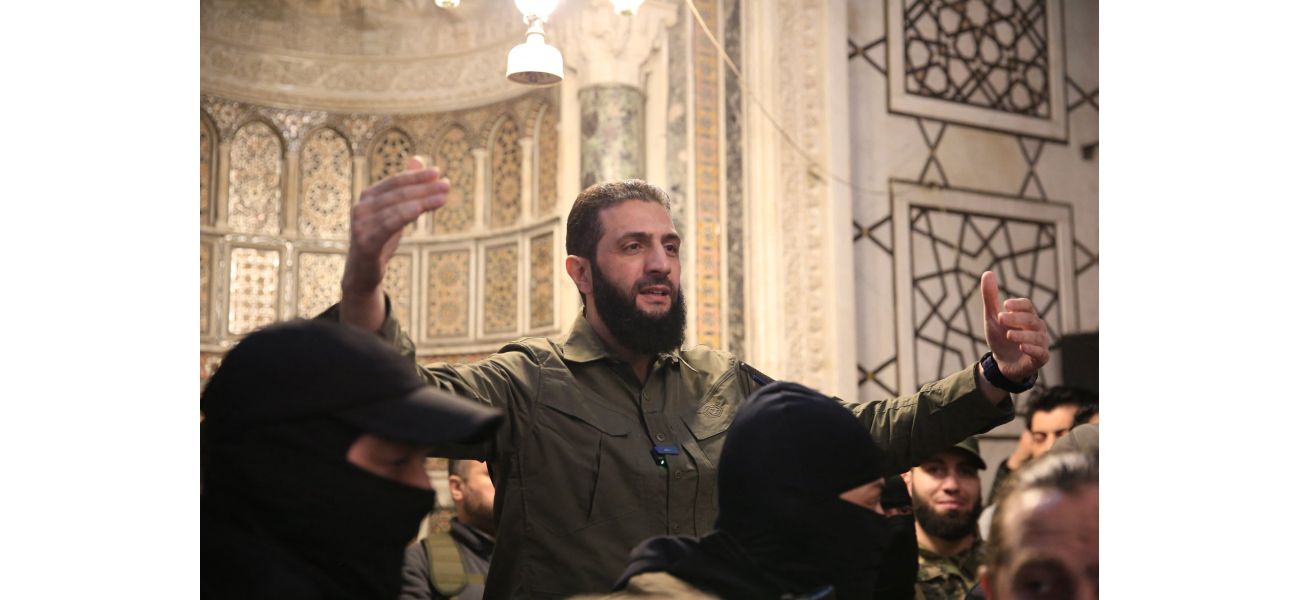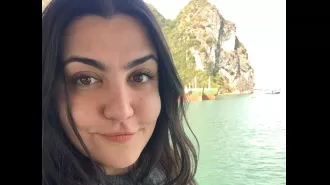Who is in charge of Syria? The rebels who overthrew a dictator.
Recent fighting in Syria's civil war has been the most impactful in years.
December 9th 2024.

Abu Mohammed al-Golani, the leader of a militant group, has made headlines once again as his rebels successfully overthrew Syrian President Bashar al-Assad and seized control of Damascus. This unexpected and swift takeover has left the world in shock, as the Syrian rebels, under the banner of Hayat Tahrir al-Sham (HTS), marched towards the capital from their stronghold in Idlib.
For many Syrians, this is a moment of celebration as they have been living under Assad's oppressive regime for the past 24 years. However, the focus now shifts to the future and what it holds for the country that has been ravaged by civil war for the past 13 years. In the midst of the chaos, the question remains - what will happen next?
The rebels' surprise assault was launched from the city of Aleppo, but it was HTS, a branch of Al Qaeda, that led the majority of the fighting. Despite being designated as a terrorist organization by the US, the UN, Turkey, and others, HTS has been able to gain control of major cities and free prisoners who had been held captive by Assad's regime. It is estimated that the group has around 30,000 soldiers.
The defeat of Assad's regime marks the end of his 24-year rule and has forced him to flee to Moscow. This turn of events has raised questions about the future of Syria and its leadership. But who exactly are the rebels behind this insurgency?
HTS, also known as Hayat Tahrir al-Sham, was formed during the popular uprising in Syria in 2011. It was Abu Bakr al-Baghdadi, the leader of the Islamic State, who sent his Syrian-born soldier, Abu Mohammed al-Golani, back to his homeland to form a new wing that would oppose the Syrian government. In a 2014 interview with Al Jazeera, al-Golani, with his face covered, stated his goal of seeing Syria ruled by Islamic law, with no room for minority groups such as Shiites, Druze, Alawites, or Christians.
However, in 2016, al-Golani broke ties with Al Qaeda, in what experts believe was an attempt to appear more moderate. He has since rebranded himself, shedding his turban and military attire for a more polished look. In a 2021 interview with an American journalist, he insisted that his group does not pose a threat to the West, despite their criticisms of Western policies. In 2023, he even allowed the first Christian mass to be held in years in the city of Idlib, claiming to protect Syria's Christian communities.
But despite this apparent shift in ideology, the future plans of HTS remain unclear. As the world watches their swift takeover, there are concerns about their intentions and how they will govern the country.
HTS is not the only group fighting in Syria. The Syrian National Army, which has close ties to Turkey, and the Syrian Democratic Forces, a coalition of mainly Kurdish fighters, are also involved in the conflict with their own agendas. While the SNA has been in conflict with Kurdish forces, the SDF has received support from the US in their fight against the Islamic State.
The Syrian civil war, which began in 2011, has been one of the most complex and devastating conflicts of the 21st century. It has exposed the deep-seated divisions among the country's diverse population, with a Sunni Muslim majority and minority groups such as Shiites, Alawites, Druze, and Christians.
The war started as an uprising against Assad's authoritarian regime, triggered by the Arab Spring protests. As the government responded with deadly crackdowns, it led to the formation of armed opposition groups and eventually plunged the country into a full-scale civil war.
Since then, Assad has been at war with opposition forces, resulting in the deaths of more than 300,000 people and displacing millions of Syrians. The conflict has also drawn in global powers such as Russia, Iran, Turkey, and the US, each backing different sides.
Russia, in particular, has been a staunch supporter of the Assad regime, providing military, political, and economic backing. In 2015, they launched a significant intervention that turned the tide of the war in Assad's favor. This support is driven by strategic interests, such as maintaining a naval base in Tartus and preserving influence in the Middle East.
As the world continues to digest the unexpected turn of events in Syria, one thing is certain - the country's future remains uncertain, and only time will tell what it holds.
For many Syrians, this is a moment of celebration as they have been living under Assad's oppressive regime for the past 24 years. However, the focus now shifts to the future and what it holds for the country that has been ravaged by civil war for the past 13 years. In the midst of the chaos, the question remains - what will happen next?
The rebels' surprise assault was launched from the city of Aleppo, but it was HTS, a branch of Al Qaeda, that led the majority of the fighting. Despite being designated as a terrorist organization by the US, the UN, Turkey, and others, HTS has been able to gain control of major cities and free prisoners who had been held captive by Assad's regime. It is estimated that the group has around 30,000 soldiers.
The defeat of Assad's regime marks the end of his 24-year rule and has forced him to flee to Moscow. This turn of events has raised questions about the future of Syria and its leadership. But who exactly are the rebels behind this insurgency?
HTS, also known as Hayat Tahrir al-Sham, was formed during the popular uprising in Syria in 2011. It was Abu Bakr al-Baghdadi, the leader of the Islamic State, who sent his Syrian-born soldier, Abu Mohammed al-Golani, back to his homeland to form a new wing that would oppose the Syrian government. In a 2014 interview with Al Jazeera, al-Golani, with his face covered, stated his goal of seeing Syria ruled by Islamic law, with no room for minority groups such as Shiites, Druze, Alawites, or Christians.
However, in 2016, al-Golani broke ties with Al Qaeda, in what experts believe was an attempt to appear more moderate. He has since rebranded himself, shedding his turban and military attire for a more polished look. In a 2021 interview with an American journalist, he insisted that his group does not pose a threat to the West, despite their criticisms of Western policies. In 2023, he even allowed the first Christian mass to be held in years in the city of Idlib, claiming to protect Syria's Christian communities.
But despite this apparent shift in ideology, the future plans of HTS remain unclear. As the world watches their swift takeover, there are concerns about their intentions and how they will govern the country.
HTS is not the only group fighting in Syria. The Syrian National Army, which has close ties to Turkey, and the Syrian Democratic Forces, a coalition of mainly Kurdish fighters, are also involved in the conflict with their own agendas. While the SNA has been in conflict with Kurdish forces, the SDF has received support from the US in their fight against the Islamic State.
The Syrian civil war, which began in 2011, has been one of the most complex and devastating conflicts of the 21st century. It has exposed the deep-seated divisions among the country's diverse population, with a Sunni Muslim majority and minority groups such as Shiites, Alawites, Druze, and Christians.
The war started as an uprising against Assad's authoritarian regime, triggered by the Arab Spring protests. As the government responded with deadly crackdowns, it led to the formation of armed opposition groups and eventually plunged the country into a full-scale civil war.
Since then, Assad has been at war with opposition forces, resulting in the deaths of more than 300,000 people and displacing millions of Syrians. The conflict has also drawn in global powers such as Russia, Iran, Turkey, and the US, each backing different sides.
Russia, in particular, has been a staunch supporter of the Assad regime, providing military, political, and economic backing. In 2015, they launched a significant intervention that turned the tide of the war in Assad's favor. This support is driven by strategic interests, such as maintaining a naval base in Tartus and preserving influence in the Middle East.
As the world continues to digest the unexpected turn of events in Syria, one thing is certain - the country's future remains uncertain, and only time will tell what it holds.
[This article has been trending online recently and has been generated with AI. Your feed is customized.]
[Generative AI is experimental.]
0
0
Submit Comment





